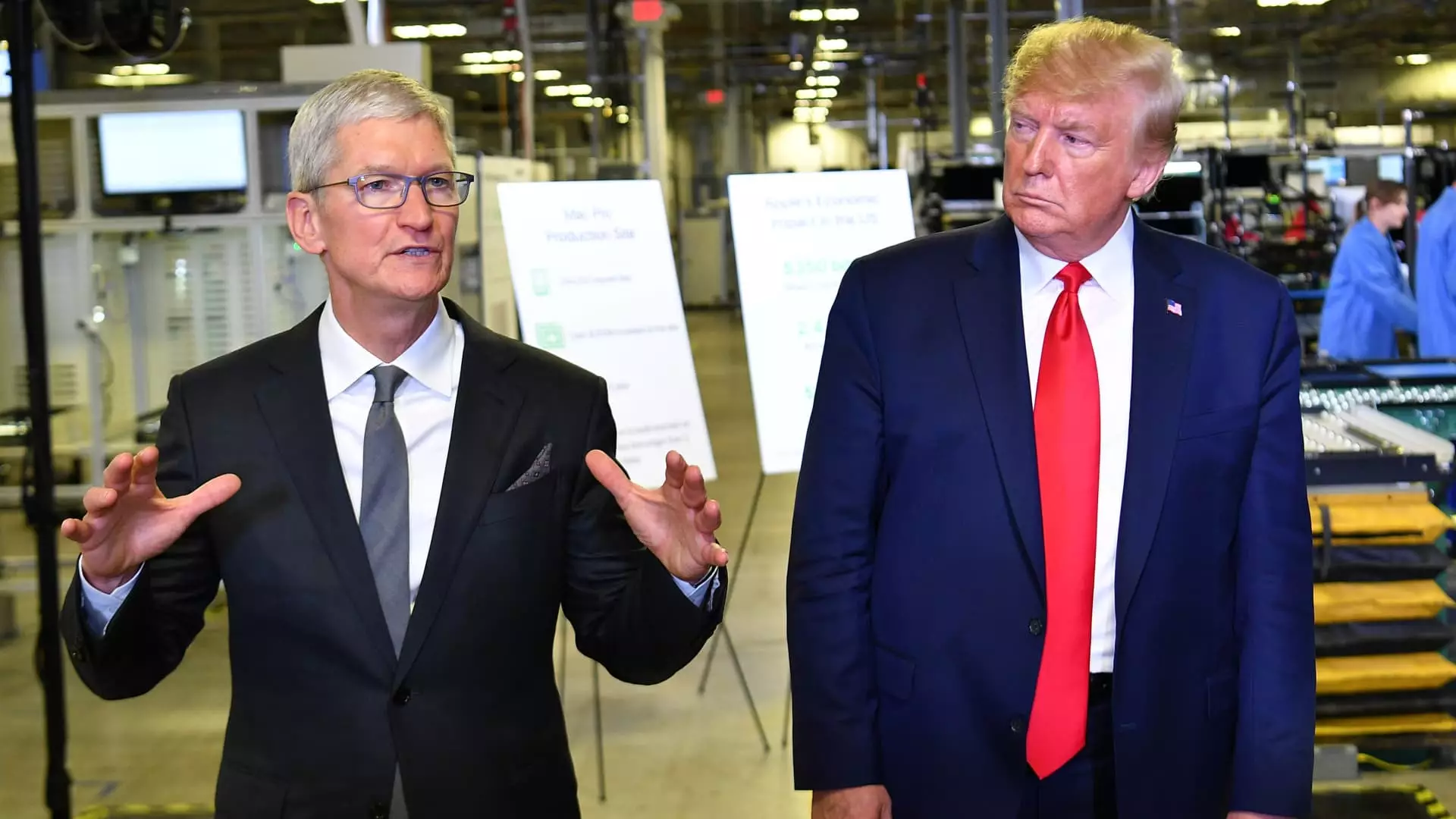In a striking move that rattled the stock market, former President Donald Trump took to social media last Friday to announce potential tariffs on Apple products if the tech giant does not shift its manufacturing back to the United States. In his post, Trump expressly stated that he had informed Apple CEO Tim Cook of his expectations: iPhones sold in the U.S. should be made in America rather than in countries like India or China. Such a statement, accompanied by a daunting 25% tariff threat, serves to not just target Apple but also to send ripples through the larger technology and manufacturing sectors.
Trump’s ultimatum caused Apple shares to plummet by about 3% during pre-market trading—a clear indication that investors and analysts are wary of how these trade tensions can affect market stability. It poses an interesting dilemma: could these tariffs, which are enacted in the name of boosting American production, ultimately lead consumers to pay exorbitantly higher prices for their beloved devices?
The Potential Price Hike: A Double-Edged Sword
Analysts, including those from Wedbush, have begun estimating that if Apple were to relocate its manufacturing to the U.S., it could push the price of the iPhone to unprecedented heights. The current retail price of the iPhone 16 Pro is around $1,000, but projections suggest that a fully American-made device could soar to as much as $3,500—a staggering increase that could deter consumers and erode Apple’s competitive edge in an already crowded smartphone market.
This price surge could be a double-edged sword for Apple. On the one hand, domestic manufacturing could insulate the company from fluctuating trade policies and tariffs. On the other hand, it puts the burden on consumers who prefer not to spend an arm and a leg for a smartphone. Thus, it poses a fundamental question: Is America ready to pay a premium for “Made in the USA,” and do consumers even care enough about origin to make such a change viable?
The Shift Toward India: A Pragmatic Maneuver
Apple’s gradual shift to establish a manufacturing presence in India highlights a broader strategy to mitigate risks associated with over-reliance on China. While this pivot aligns with a desire for greater flexibility, it also underscores the complexities involved in global supply chains—complexities that Trump’s tariffs do little to address. In fact, Foxconn, one of Apple’s primary partners in manufacturing, is currently investing heavily in expanding its facilities in India with a significant $1.5 billion expenditure. This move not only positions Apple to take advantage of India’s favorable trade environment but also calls into question the sustainability of localizing more production if U.S. tariffs come into play.
Trump’s increased scrutiny on Apple could provoke a backlash not just within the technology sector but also from consumers who brace themselves for price hikes. The juxtaposition of patriotism and economic practicality in manufacturing reveals the tension in balancing national pride with market viability.
Political Tensions and Corporate Relationships
Trump’s threats against Apple are reminiscent of his administration’s previous battles with major corporations. While Cook and Trump had maintained a seemingly amicable relationship during Trump’s presidency—evidenced by Cook’s financial contributions to Trump’s inauguration—this latest public critique represents a significant shift. Cook’s recent remarks indicate the global context of trade is “very difficult to predict,” emphasizing a growing uncertainty that could impact not just Apple but numerous corporations that rely on international trade.
Moreover, Trump’s call for a 50% tariff on products imported from the European Union amplifies the risks of escalating global trade tensions. Consumers might soon find themselves grappling with a conundrum: increased prices on a range of products, from their favorite gadgets to their everyday groceries, driven by protectionist policies that could hurt small-to-medium-sized businesses alongside major tech companies.
As Apple navigates the evolving landscape marked by these threats, the company finds itself facing declining demand in China, one of its largest markets. Coupled with increased trade-in incentives in that region, it becomes evident that Apple must strategize carefully to maintain its market share while averting the pitfalls of tariff-induced price hikes.
Ultimately, the pressures exerted by Trump on Apple reflect a broader narrative of U.S. economic policy that prioritizes domestic manufacturing but overlooks the implications of such policies in an interconnected global economy. This clash of ideologies and practical realities will play out not only in the stock market but also in the pockets of everyday consumers eager for innovative technology without exorbitant price tags.

